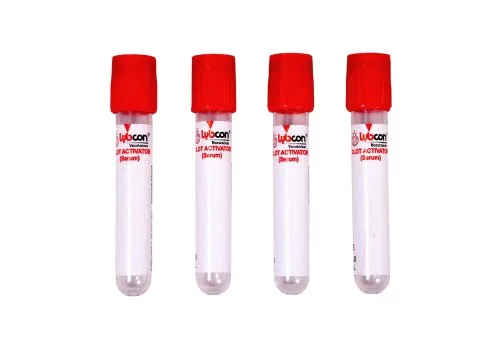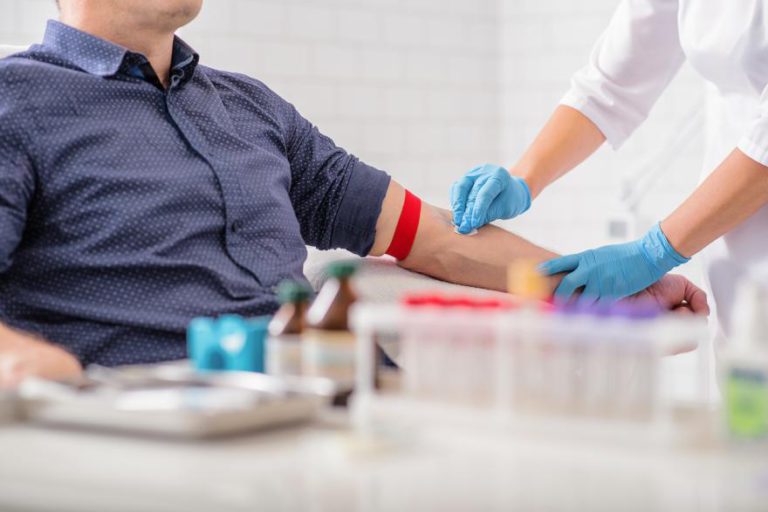
Prostate-specific antigen (PSA) is a protein produced by the prostate gland, a small walnut-shaped gland located just below the bladder in men. PSA is an essential component of seminal fluid, playing a vital role in fertility by helping to liquefy semen, allowing sperm to swim freely. Beyond its role in reproduction, PSA has gained significant attention as a biomarker in prostate health, especially concerning prostate cancer. Elevated PSA levels can often indicate underlying issues in the prostate, including inflammation, benign enlargement, or cancer. Understanding PSA, its testing methods, and its implications is essential for maintaining prostate health.
What is Prostate Specific Antigen?
PSA, or prostate-specific antigen, is a protein that the prostate cells produce in small amounts under normal conditions. Typically, PSA is found in high concentrations within the prostate and seminal fluid, but a small amount of PSA also enters the bloodstream. PSA’s role in semen is to help break down larger proteins into smaller particles, making semen more fluid and aiding sperm mobility, which is crucial for successful fertilization.
In a healthy prostate, PSA levels in the blood are relatively low. However, when the prostate becomes enlarged, inflamed, or cancerous, it may release more PSA into the bloodstream, leading to elevated levels that can be detected through a blood test. While PSA itself is not harmful, the levels can act as an important signal for detecting prostate conditions.
Understanding the Prostate specific AntigenTest
The PSA test is a blood test specifically designed to measure the concentration of prostate-specific antigen in the bloodstream. It is a widely used screening tool for early detection of prostate conditions, including prostate cancer. The PSA test is typically quick and straightforward, involving a simple blood draw. The blood sample is then analyzed in a laboratory to determine PSA levels, with results typically measured in nanograms per milliliter (ng/mL).
Doctors may recommend PSA testing as part of a routine health check for men, particularly for those over 50 or with a family history of prostate cancer. The test does not diagnose prostate cancer on its own but serves as an initial indicator, prompting further investigation if PSA levels are found to be unusually high.
Why did my doctor order Prostate-specific antigen?
Your doctor may have ordered a PSA (prostate-specific antigen) test to assess your prostate health and detect any potential issues early. Here are several common reasons why a PSA test is ordered:
Screening for Prostate Cancer
One of the primary uses of a PSA test is to screen for prostate cancer, especially in men over 50 or those with a family history of the disease. Prostate cancer is often asymptomatic in its early stages, so a PSA test can provide early detection, potentially before symptoms appear.
Monitoring Prostate Health
If you have a history of prostate issues, such as benign prostatic hyperplasia (BPH) or prostatitis, your doctor may use PSA testing to monitor any changes over time. PSA levels can fluctuate with these conditions, so regular testing helps track if they’re stable or progressing.
Evaluating Symptoms of Prostate Problems
If you have symptoms that could be related to prostate health — such as frequent urination, difficulty starting or stopping urination, or discomfort during urination — a PSA test can help your doctor identify potential causes.
Following Up on Previous PSA Test Results
If you’ve had a PSA test before and your levels were elevated or borderline, your doctor might order another test to see if your PSA levels have changed. Tracking these levels over time (known as PSA velocity) can provide insight into your prostate health.
Post-Treatment Monitoring
For men who have been treated for prostate cancer, PSA testing is a key tool for monitoring recurrence. If PSA levels remain low or undetectable, it suggests successful treatment, while rising levels may indicate a need for further evaluation.
Why prostate-specific antigen test Matter?
PSA levels are significant because they can provide early warnings of prostate-related issues, often before any symptoms arise. By monitoring PSA levels, doctors can detect changes in prostate health early, allowing for prompt and effective intervention. Elevated PSA levels may indicate several possible conditions, including prostate cancer, benign prostatic hyperplasia (BPH), and prostatitis (inflammation of the prostate).
However, it is essential to understand that a higher-than-normal PSA level doesn’t necessarily mean cancer. Many non-cancerous factors can lead to an increase in PSA levels. Additionally, doctors consider other factors, like age, medical history, and PSA trends over time, to interpret PSA results accurately and determine if further tests, like a biopsy or MRI, are necessary.
What are Causes of Prostate-specific Antigen Test Levels?
Several factors can lead to an increase in PSA levels, including:
- Prostate Cancer: One of the primary reasons for elevated PSA levels, although not the only cause.
- Benign Prostatic Hyperplasia (BPH): A non-cancerous enlargement of the prostate common in older men.
- Prostatitis: An infection or inflammation of the prostate can cause a temporary spike in PSA.
- Urinary Tract Infections (UTIs): UTIs can impact PSA levels, leading to temporary elevations.
- Recent Ejaculation or Physical Activity: Activities like recent ejaculation, cycling, or even digital rectal exams (DREs) can temporarily elevate PSA levels.
Doctors consider these and other factors when interpreting PSA results, as not every elevation is a sign of cancer. Often, doctors will recommend retesting PSA levels after a few weeks if an elevation appears to rule out temporary causes.
What is a normal Prostate-specific antigen by age?
A normal PSA depends on your age. Your PSA levels slowly increase as you get older, even if you don’t have prostate cancer or any other conditions that affect your prostate. Elevated PSA levels may indicate that you have prostate cancer.
Healthcare providers measure PSA in your blood in nanograms per milliliter of blood (ng/ml).
| Age | Normal Level (ng/ml) | Abnormal Level (ng/ml) |
|---|---|---|
| 40 to 50 | 0 to 2.5 | Higher than 2.5 |
| 50 to 60 | 2.5 to 3.5 | Higher than 3.5 |
| 60 to 70 | 3.5 to 4.5 | Higher than 4.5 |
| 70 to 80 | 4.5 to 5.5 | Higher than 5.5 |
When is a PSA test performed?
PSA tests are very common. If you have a prostate, most healthcare providers recommend getting a PSA test every two to three years, starting around age 50.
If your PSA test results are abnormal, a provider may recommend close observation, with PSA tests and other screenings every six to 12 months.
If you have a high risk of prostate cancer, a provider may recommend getting regular PSA tests starting around 40. You may have a high risk of prostate cancer if you:
- Have a biological family history of prostate cancer (for example, your first-degree family members or two or more extended family members have prostate cancer).
- Are Black.
If you have prostate cancer, a provider may also recommend a PSA test to assess the effectiveness of your treatment or to make sure prostate cancer hasn’t come back.
What to expect before a Prostate-specific antigen test?
Before a PSA test, tell a healthcare provider if you:
- Are taking medications for benign prostatic hyperplasia (BPH), including finasteride (Proscar) or dutasteride (Avodart).
- Are taking finasteride (Propecia) for hair loss.
- Had surgery to treat BPH, including transurethral resection (TUR).
- Had a prostate biopsy in the last six weeks.
- Recently used a urinary catheter or another procedure that affects your urinary system.
- Have a condition that affects your liver, such as cirrhosis of the liver, cystic fibrosis or hepatitis C.
- Currently have a urinary tract infection (UTI) or had one in the previous three months.
These medications and procedures can affect your PSA levels, which prevents a provider from getting an accurate reading.
A provider will give you directions a few days before your PSA test to help ensure you get the most accurate reading. These include:
- Don’t engage in any sexual activity 48 hours before your PSA test, including masturbation. Ejaculating may cause your PSA levels to rise temporarily.
- Don’t exercise 48 hours before your PSA test. Vigorous exercise — especially bicycling — can temporarily raise your PSA levels.
What to expect during a Prostate-specific antigen test?
A PSA test is a type of blood test. During a PSA blood test, a healthcare provider will:
- Disinfect the skin around a vein, usually in your arm.
- Use a thin needle to withdraw a small amount of blood from a vein.
- Send your blood sample to a lab for analysis.
How long does a Prostate-specific antigen test take?
The blood draw for a PSA test usually takes only a few minutes. A healthcare provider may recommend resting for another few minutes before standing up and leaving.
What to expect after a Prostate-specific antigen test?
After the healthcare provider removes the needle, they’ll put clean cotton or gauze on the puncture wound and apply pressure to help stop any bleeding. They’ll then place a bandage on your skin.
Keep the bandage on for a few hours and keep it dry. You should also drink plenty of fluids and avoid exercising for a few hours after your blood test. Exercising after a blood draw puts you at an increased risk of:
- Fatigue.
- Dizziness.
- Fainting.
- Nausea and vomiting.
- Bleeding.
- Bruising.
What are the risks of a Prostate-specific antigen test?
Risks or complications of a PSA test include:
- Other conditions besides prostate cancer may cause high PSA levels, including benign prostatic hyperplasia (BPH), prostate inflammation (prostatitis) and UTIs. These may raise concerns or cause the need for additional tests.
- Some types of prostate cancer don’t cause elevated PSA levels. You may have prostate cancer even if a PSA test says your levels are normal.
- You may feel nauseated, lightheaded or tired during or immediately after your blood draw.
- You may have pain or bruising at your needle injection site for a few days.

What type of results do you get, and what do the results mean?
PSA levels vary in range according to your age. If your PSA levels are higher than expected for your age range, it doesn’t mean that you have prostate cancer. But you might have a higher risk. Healthcare providers will order additional prostate cancer tests, which may include:
- Imaging tests. An MRI (magnetic resonance imaging) or a transrectal ultrasound can take detailed images of your prostate. If they reveal any suspicious areas, a provider may perform a biopsy.
- Prostate biopsy. During a prostate biopsy, a provider will remove a tissue sample from your prostate and test it for cancer. A prostate biopsy is the only way to diagnose prostate cancer and determine its stage.
When should I know the results of a prostate-specific antigen test?
You should get the results of your PSA test within a week. A healthcare provider may contact you to schedule a follow-up appointment to discuss your results.
What level of prostate-specific antigen indicates cancer?
Elevated PSA levels aren’t a guarantee you have prostate cancer. There’s no specific PSA level that indicates whether you have prostate cancer or not. The only way to know for sure that you have prostate cancer is to get a prostate biopsy.
A PSA level between 4 and 10 means you have over a 25% chance of having prostate cancer. If you have a PSA level greater than 10, you have over a 50% chance of having prostate cancer. It’s very important to talk to a healthcare provider about a prostate biopsy if your PSA is in these ranges.
When should I call my doctor?
Contact a healthcare provider about a PSA test if you have:
- A prostate and are 50 or older.
- An increased risk of prostate cancer. You have a higher risk of prostate cancer if you have a personal or family history of prostate cancer or you’re Black.
- Symptoms of prostate cancer.
Say Goodbye To Waiting Rooms And Long Lines. Speedy Sticks offers at-home testing.








